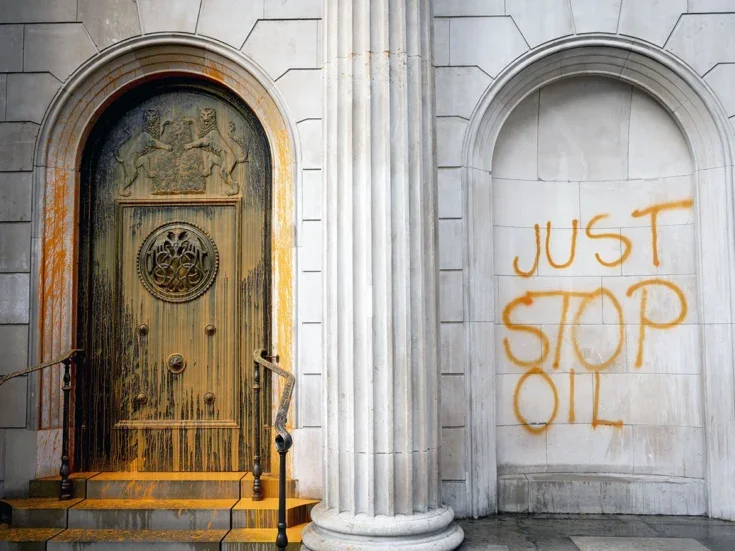No Safety Net The world economy is like a high-wire act where the man with the balancing-pole is clinging on gamely but wobbling uncomfortably, even dangerously, while everyone else is anxiously holding their breath, relieved only by big gulps of revivifying air at each and every fraught step negotiated without immediate disaster.
No Safety Net
THE WORLD ECONOMY is like a high-wire act where the man with the balancing-pole is clinging on gamely but wobbling uncomfortably, even dangerously, while everyone else is anxiously holding their breath, relieved only by big gulps of revivifying air at each and every fraught step negotiated without immediate disaster. That is, at any rate, the official view of the IMF, which is exhorting world leaders to do more for growth at every summit that comes along, as it warns endlessly that the world is on the edge of the abyss.
Given the flaky state of the banking system in euroland, propped up with the Mario Draghi-led ECB’s new-found largesse, the abyss is as threatening as ever. The eurozone itself is threatened by the early possibility of a Greek default, or if the next €130 billion bail-out does go ahead, all it will achieve will be a delay of the crisis for about a year, when the fall-out will be even greater. The North-South imbalances of trade, productivity, tax revenues and deficits are set to continue and exacerbate the eurozone crisis unless German resistance to an EU transfer union is overturned. Meanwhile, the eurozone and its banks must repay €1.3 trillion in 2012.
Then there are the political threats from this year’s elections in France and America. The situation in France emphasises the growing perception of the nation state versus the federal EU, with two nationalistic candidates, Hollande and Le Pen, out-polling the pro-euro Sarkozy. Such is the alarm in Brussels and Berlin that Merkel is actively considering standing with Sarko on the hustings, a Merkozy combination that could easily backfire badly as the world watches the democratic deficit being exploited by EU diktats in Greece and Italy, and new legislation to suspend economic sovereignty in laggard economies is approved in Brussels.
If the US recovery manages to keep some momentum through all the turbulence, it makes the re-election of Obama more likely, especially as the GOP remains without a clear leader, but the Democrats may win the White House only to lose both houses: what happens then to the deficit? One thing will be relatively certain if Obama is re-elected and Bernanke stays at the Fed: it will put enormous market pressure on Bernanke to end his ultra-benign low interest rate regime that has cushioned the world economy for the past three years, especially as deficits, including the UK’s, are still headed north.
The intractable problem for the G7 is that they are now all ex-growth, with no government with the manoeuvre-room to do anything much at all, and no government seems prepared to add to the downside risk of increasing its deficit by doing something bold, like taking an outsize risk, such as dramatically halving corporation tax or cancelling payroll taxes on new recruits, for three years and longer.
With zero growth and little confidence, unemployment will increase or remain stubbornly high, led once again by the austerity-ridden and deeply deflationary euro-zone, where unemployment of the under-25s is 22.4 per cent on average, and 52.4 per cent in Spain. At some point the rope underfoot has to snap.






